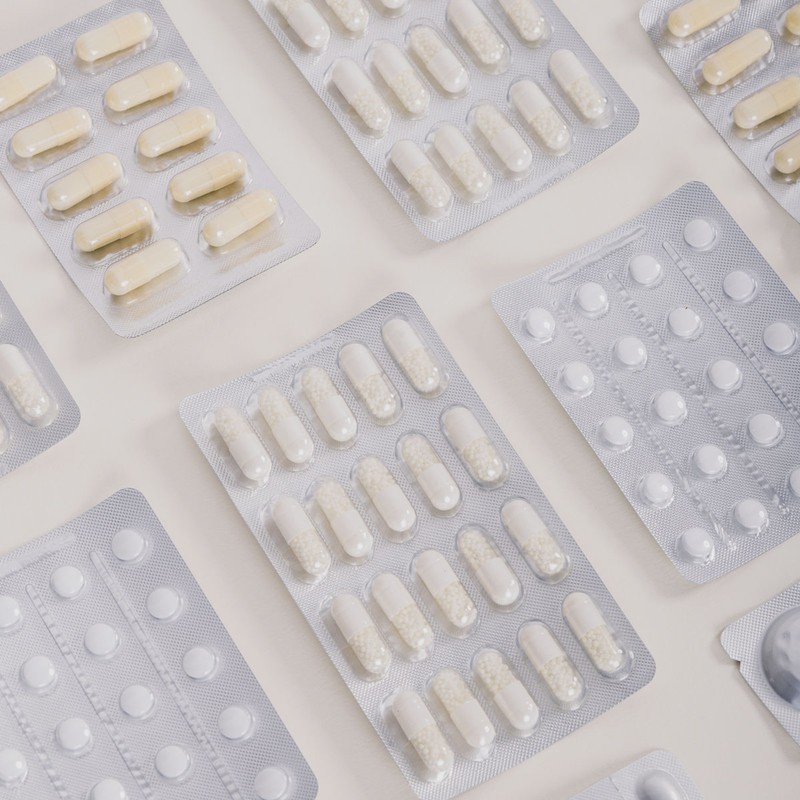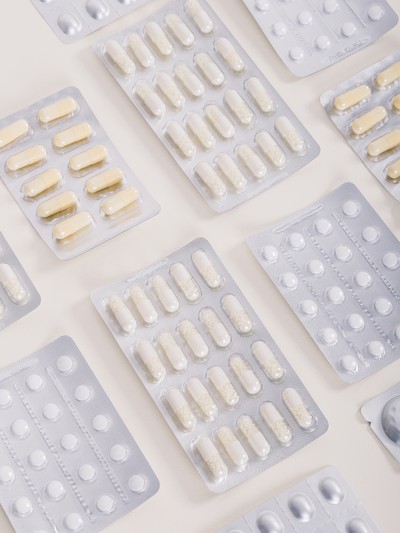

A Pharmacist’s Guide To Managing Your Medication
Know The Stats
“According to a recent NHS Health Survey, around 76% of women over the age of 45 take one prescribed medicine daily, while half of women over 45 take three or more – this excludes contraception or medication aimed at helping you to stop smoking. More recent studies show women in England are almost twice as likely as men to be prescribed opiate painkillers. Taking multiple medications can be a tricky business and keeping them organised can be difficult. It can be overwhelming to remember the names of medications, why you take them and how often you need to take them. Research shows a large proportion of people aren’t taking their medication correctly, which leads to unnecessary side effects, adverse interactions with other medications and reduced health outcomes.” – Sadik Al-Hassan, superintendent pharmacist at PillTime
Understand The System
“When you are prescribed a new medicine, your pharmacist may invite you to the New Medicine Service (NMS), which involves three stages. When you first collect your medicine, the pharmacist may explain how and when to take it, any common side effects, what to do if you experience any side effects or feel like it’s not working and arrange a second consultation. The second consultation will check if you have any questions from the first, if you have been able to take the medicine as prescribed, check if you need any further information or if any adjustments are needed. The final consultation will review if the medicine has been taken as prescribed, if any adjustments are needed and to answer any further questions. Throughout the NMS, the pharmacist may refer you back to your GP if appropriate.” – Katie Pickles, pharmacist from Well Pharmacy
Pick One Pharmacy & Stick With It
“If you’re taking several medications and you’re constantly picking them up from different pharmacies, it can feel impossible to keep track of it all. It can be a good idea to pick one pharmacy and use it for all of your prescription needs. This means they will get to know you, and vice versa, and it can help when it comes to medication changes, repeat prescriptions and emergency supplies, should you need them. Although a pharmacist doesn’t replace your doctor, they can become a valuable ally when it comes to your health. You can also ask your pharmacy to help you write a list of the medication you take and the role of each, so it’s easy to refer to if any confusion arises.” – Dr Raj Arora, GP
Always Read The Label
“Some medication works better when taken in a specific way – such as whether it’s better to take it with food or on an empty stomach – so it’s important to always read the label. For example, a common medicine for the treatment of thinning bones – alendronic acid – needs to be taken with a glass of water and you then must stay upright for 30 minutes to reduce the risk of the tablet getting stuck on the way down to your stomach. When you pick up a new medicine from your pharmacy the first step is to listen to the advice you are given and then read the label when you get home. Inside the box is a patient information leaflet which contains a summary of the key information on the medicine, such as side effects and what other medicines it interacts with.” – Sadik
Get Organised
“Medicine often comes in different size packets or boxes and, if you can, keep your medication in its original packaging to ensure you don’t mix them up. When picking up a prescription, check if you have received more than one box of medicine and group them together (perhaps using an elastic band), especially if you have received more than one manufacturer of the same medicine – it’s the same drug, but may have a difference appearance or colour box. Try to keep your medicines aligned, too. If you start a new medicine and your monthly medicines become out of sync (e.g. you have 14 days of one medicine, and none left of the other at the end of the month), it can be helpful to write a list of how many of each tablet you have left and ask the GP if you can align your medicines so you only need to collect them monthly.” – Katie
Store Them Properly
“Keeping medicines in a memorable place is helpful and will help you get into a routine – for example, put your night-time medication next to your bedside lamp so you remember to take it before bed. However, be wary of places in your home which may expose medicines to additional moisture or heat, such as a bathroom or kitchen.” – Katie
Use A Pill Box
“A pill box that is marked with the days of the week is a great way to keep track of which medications you need to take daily. However, it can be risky if you accidentally mix your tablets up when putting them into the daily boxes. PillTime is an online pharmacy that processes prescribed medication into convenient daily pouches sorted by the time of day you take them, which can make a medication regimen far easier to manage. Essentially, it makes it really clear when you’ve missed a dose, which completely eradicates the risk of doubling up.” – Sadik
Give Yourself Reminders
“Setting an alarm or timer on your phone can help you keep track of when to take your medication. You can also try using an app like Medisafe, Take Your Pills or Pill Reminder – some patients find these are helpful in recording their medication regimens and following them correctly.” – Raj
Be Careful With Supplements
“In your fifties and beyond, you may be experiencing menopausal symptoms and, as a result, turn to over-the-counter supplements or complementary therapies. However, it’s important to always double check if these supplements interact with your medication – if you are in any doubt, chat to your GP or pharmacist.” – Raj
Listen To Your Body
“Your GP will do the best they can to get you the correct medication, but sometimes prescription drugs have unforeseen reactions. When you start a new medicine, your pharmacist will advise if your medicine may carry some initial side effects, which usually last for three days. Some medicines take several days or up to two weeks to start working and for you to feel the beneficial effects, so be patient. But if you have any serious side effects or concerns, speak to your GP or pharmacist. Remember, it’s your health so it’s important you feel happy and comfortable with your medication.” – Sadik
Communicate With Your Doctor
“Remember you are in control of your health and optimisation of medication is key. Take responsibility for your health – and if you’ve been on several medications for a while, consider reviewing all medication and supplements with your GP, and coming off the ones that may no longer be required.” – Raj
For more from the experts visit PillTime.co.uk and Well.co.uk and follow @Dr_RajArora on Instagram
DISCLAIMER: Features published by SheerLuxe are not intended to treat, diagnose, cure or prevent any disease. Always seek the advice of your GP or another qualified healthcare provider for any questions you have regarding a medical condition, and before undertaking any diet, exercise or other health-related programme.
DISCLAIMER: We endeavour to always credit the correct original source of every image we use. If you think a credit may be incorrect, please contact us at info@sheerluxe.com.

